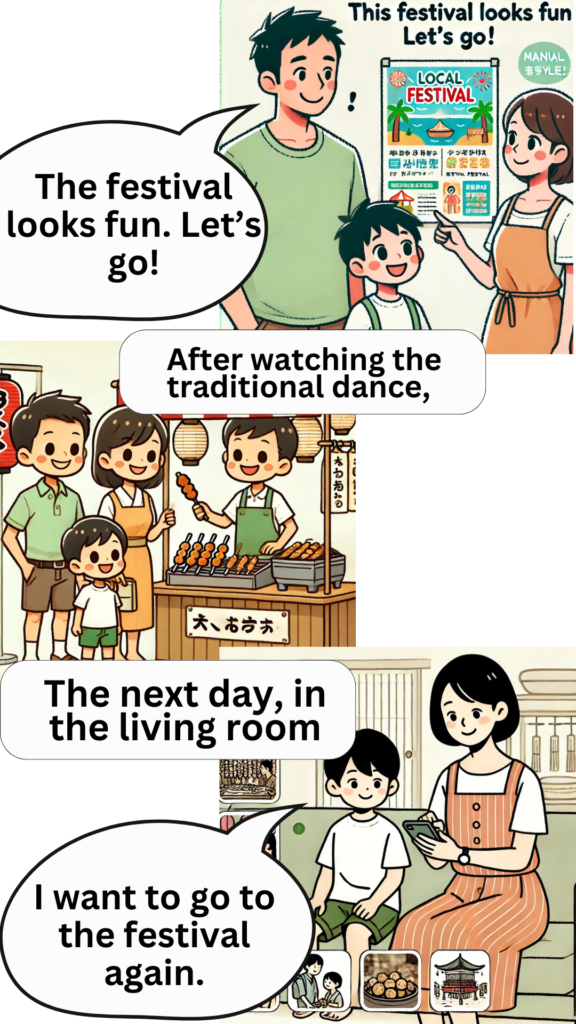目次
はじめに
英検では、地域・観光に関するトピックが頻出です。2025年度の試験では、日本のオーバーツーリズム(観光公害)に関する問題が出題される可能性が高まっています。本記事では、オーバーツーリズムについての必須表現、試験に役立つフレーズ、出題傾向を詳しく解説します。
オーバーツーリズムとは?
Overtourism(オーバーツーリズム)とは、観光客が特定の地域に過度に集中し、地元住民の生活や環境に悪影響を与える現象のことを指します。日本では、京都や鎌倉などの歴史的観光地がこの問題に直面しています。
英検準2級プラスで使えるオーバーツーリズム関連表現
✅ 基本表現
- Overtourism(オーバーツーリズム)
- Tourist attractions(観光名所)
- Local residents(地元住民)
- Public transportation(公共交通機関)
- Traditional culture(伝統文化)
- Environmental impact(環境への影響)
✅ 重要フレーズ
- Too many tourists visit Kyoto every year.
(毎年、多くの観光客が京都を訪れます。) - Local people sometimes have trouble using public transportation.
(地元の人々が公共交通機関を利用するのが難しくなることがあります。) - Overtourism can damage historical sites and natural places.
(オーバーツーリズムは歴史的な場所や自然環境を損なう可能性があります。) - The government is trying to reduce the number of visitors in some areas.
(政府はいくつかの地域で訪問者数を減らそうとしています。)
2025年度の出題傾向と対策
予想される出題テーマ
観光地の混雑とその影響
※面接練習では、「質問を正確に聞き取る」ことが重要です。1回で正確に聞き取れるかチャレンジしてみましょう。
・Example Question: “What are some problems caused by too many tourists?”
・Answer: “Too many tourists can cause problems such as traffic congestion and increased waste.”
日本語訳と解説
質問: 「観光客が多すぎることによって生じる問題は何ですか?」
回答: 「多すぎる観光客は、交通渋滞やゴミの増加などの問題を引き起こす可能性があります。」
解説: オーバーツーリズムによる影響の一つに、観光地のインフラへの負担が挙げられます。観光客が集中しすぎると、道路の混雑がひどくなり、公共交通機関も混み合います。また、大量の観光客が訪れることでゴミの量が増え、地域の清掃管理が追いつかなくなることも問題です。
観光と地域経済の関係
・Example Question: “Do you think tourism is good for local towns?”
・ Answer (Yes): “Tourists spend money on food, souvenirs, and hotels. This helps the local economy.”
・Answer (No): “Some small towns become too crowded, and local people cannot enjoy their daily lives.”
日本語訳と解説
質問: 「観光は地域の町にとって良いことだと思いますか?」
回答(Yesの場合): 「観光客は食べ物、お土産、ホテルにお金を使います。これが地域経済の助けになります。」
回答(Noの場合): 「小さな町が過度に混雑し、地元の人々が日常生活を楽しめなくなることもあります。」
解説: 観光は地域経済にとってプラスの面とマイナスの面があります。観光業が盛んになると、飲食業や宿泊業が活性化し、地域経済に貢献します。しかし、一方で観光客が増えすぎると、地元住民の生活が不便になり、騒音や環境破壊の問題も発生する可能性があります。
オーバーツーリズムへの対策
・Example Question: “How can we solve the problem of overtourism?”
・Answer: “The government can set a limit on the number of tourists or promote less popular places.”
日本語訳と解説
質問: 「オーバーツーリズムの問題をどのように解決できますか?」
回答: 「政府は観光客の数に制限を設けたり、あまり知られていない観光地を促進したりすることができます。」
解説: オーバーツーリズムを解決するためには、観光客の流れを適切に管理することが重要です。政府や自治体は、特定の観光地への訪問者数を制限する政策を導入したり、新しい観光スポットを宣伝することで観光客を分散させたりする方法を取ることができます。例えば、京都では観光客の制限を強化したり、他の地域の魅力をアピールする取り組みが行われています。
オリジナル面接問題:「地元の祭りと観光」
パッセージ
Please read the passage silently for twenty seconds.(パッセージを20秒で黙読)
Now, please read the passage aloud.(パッセージ音読)
Local Festivals and Tourism
Many small towns in Japan have local festivals that attract tourists. These festivals show the unique culture and history of each town. Recently, some towns have started using social media to promote their festivals. As a result, more people, including foreign tourists, are visiting these festivals. This helps the local economy because visitors spend money on food, souvenirs, and accommodations.
音読練習:音読練習をするときは、自身の音声をスマホなどに録音して聞き直すのが効果的です。音源と比較して、発音やイントネーションなどを自己修正していきましょう。
パッセージの質問
- Question: “According to the passage, how are some towns promoting their festivals?”
Answer: “By using social media to promote their festivals.”
イラスト描写のシナリオ
- 質問: “Now, please look at the picture and describe the situation. You have 20 seconds to prepare. Your story should begin with the sentence on the card.”: One day, Mr. and Mrs. Tanaka were looking at a poster about a local festival with their son, Ken.

One day, Mr. and Mrs. Tanaka were looking at a poster about a local festival with their son, Ken. Mr. Tanaka said, “The festival looks fun. Let’s go!”
(ある日、田中さん夫妻は息子のケンと一緒に地元のお祭りのポスターを見ていました。田中さんは「祭りは楽しそうだ、行ってみよう!」と言いました。)
After watching a traditional dance at the festival, they bought yakitori from a food stall and ate together. Ken looked very happy.
(お祭りで伝統的な踊りを見たあと、屋台で焼き鳥を買って一緒に食べました。ケンはとても嬉しそうでした。)
The next day, in the living room, Mrs. Tanaka and Ken were looking at photos from the festival on her smartphone. Ken said, “I want to go to the festival again.”
(次の日、リビングルームで田中さんとケンがスマートフォンでお祭りの写真を見ていました。ケンは「またお祭りに行きたいな」と言いました。)
回答例: “One day, Mr. and Mrs. Tanaka were looking at a poster about a local festival with their son, Ken. Ken said, ‘I love festivals!’ After watching a traditional dance at the festival, they bought yakitori from a food stall and ate together. Ken looked very happy. The next day, in the living room, Mrs. Tanaka and Ken were looking at photos from the festival on her smartphone. Ken said, “I want to go to the festival again.”
シナリオ音源
意見を求める質問
質問文:
Question: “Do you think local festivals will become more popular in the future?”
- Answer (Yes): “More people are interested in learning about traditional culture. Social media also helps promote festivals to a wider audience.”
- Answer (No): “Some festivals are disappearing because younger people are not interested. Also, it is difficult for small towns to organize big events.”
身近な社会問題に関する質問
質問文:
Question: “Do you think tourism is good for local towns?”
- Answer (Yes): “Tourists help local businesses by spending money. This can improve the local economy.”
- Answer (No): “Too many tourists can cause problems, such as too much trash and noise. Some places become too crowded for local people.”
まとめ
2025年度の英検準2級プラスでは、オーバーツーリズムが重要なテーマとなる可能性があります。本記事で紹介した表現や質問例を活用し、試験対策をしっかりと行いましょう!
参考記事
Podcast [English World] Episode 56: Overtourism in Japan 過去最多の訪日客。要因は円安だけ?二重価格設定のオーバーツーリズム対策はアリ?: https://www.youtube.com/watch?v=rDeC-_N37jQ
Podcast [English World] Episode 51: Blocking Mt. Fuji 富士山隠しアリ、ナシ?ネット上で激論、今話題のオーバーツーリズムとは?: https://www.youtube.com/watch?v=mP_gay0VipY




